Unless you’ve been living under a rock for the last couple months, you’ve heard of ChatGPT. It can do a lot of cool stuff: generate a shopping list, emulate a Linux terminal, or rewrite Paradise Lost in the style of Kendrick Lamar. The sky’s the limit. It can also do some really shady stuff, like cheat on your homework or generate sexist rants. And don’t even get us started on Microsoft’s New Bing. The whole thing’s a bit dizzying. I mean, try this one on for size: how sure are you that the sentence you’re reading right now wasn’t generated by a language model?
*mic drop*
But we had a different idea. What we wondered was: what if we told ChatGPT to write a real estate investment plan?
If you’re curious about the answer, read on.
Hey ChatGPT, Make Me Rich
We started out with a nice, neutral prompt engineered to give us something substantial to work with. Let’s see how it went:

Not bad, right? Right away, it’s hitting most of the big points: define your goals, research thoroughly, lock in your financing, and manage your investments with care.
But there’s a downside: it’s not very specific. So we decided to ask it a couple of follow-up questions. Start with a big one for us: how can we optimize risk-adjusted returns?
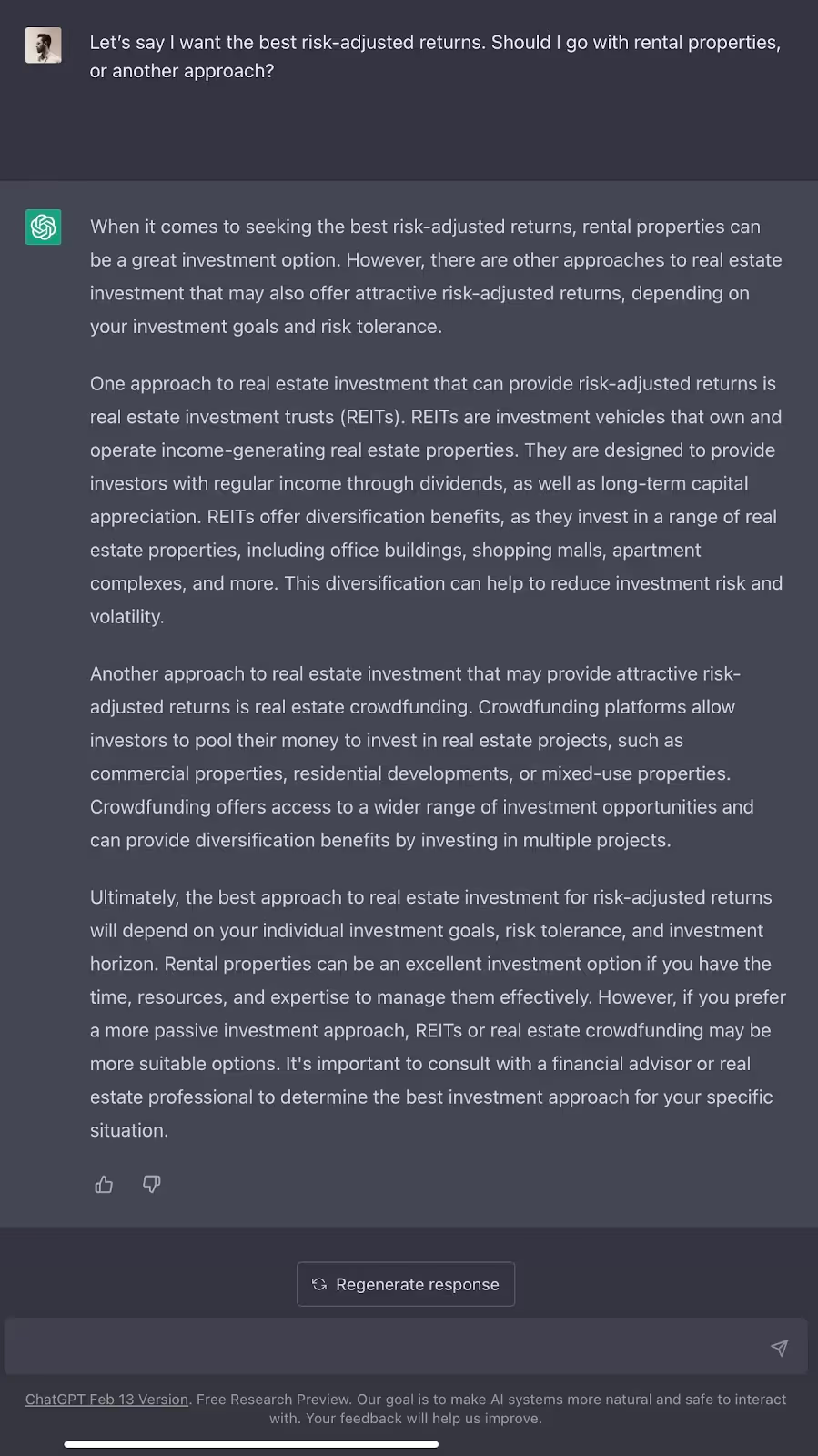
All in all, this is a pretty good answer. ChatGPT offers some (admittedly pretty rudimentary) pros and cons on some of the best avenues to real estate success: REITs and crowdfunding. While the analysis lacks some depth, it’s basically right about how REITs and crowdfunding work.
But one major entry was missing from the list, so we decided to rectify that oversight.
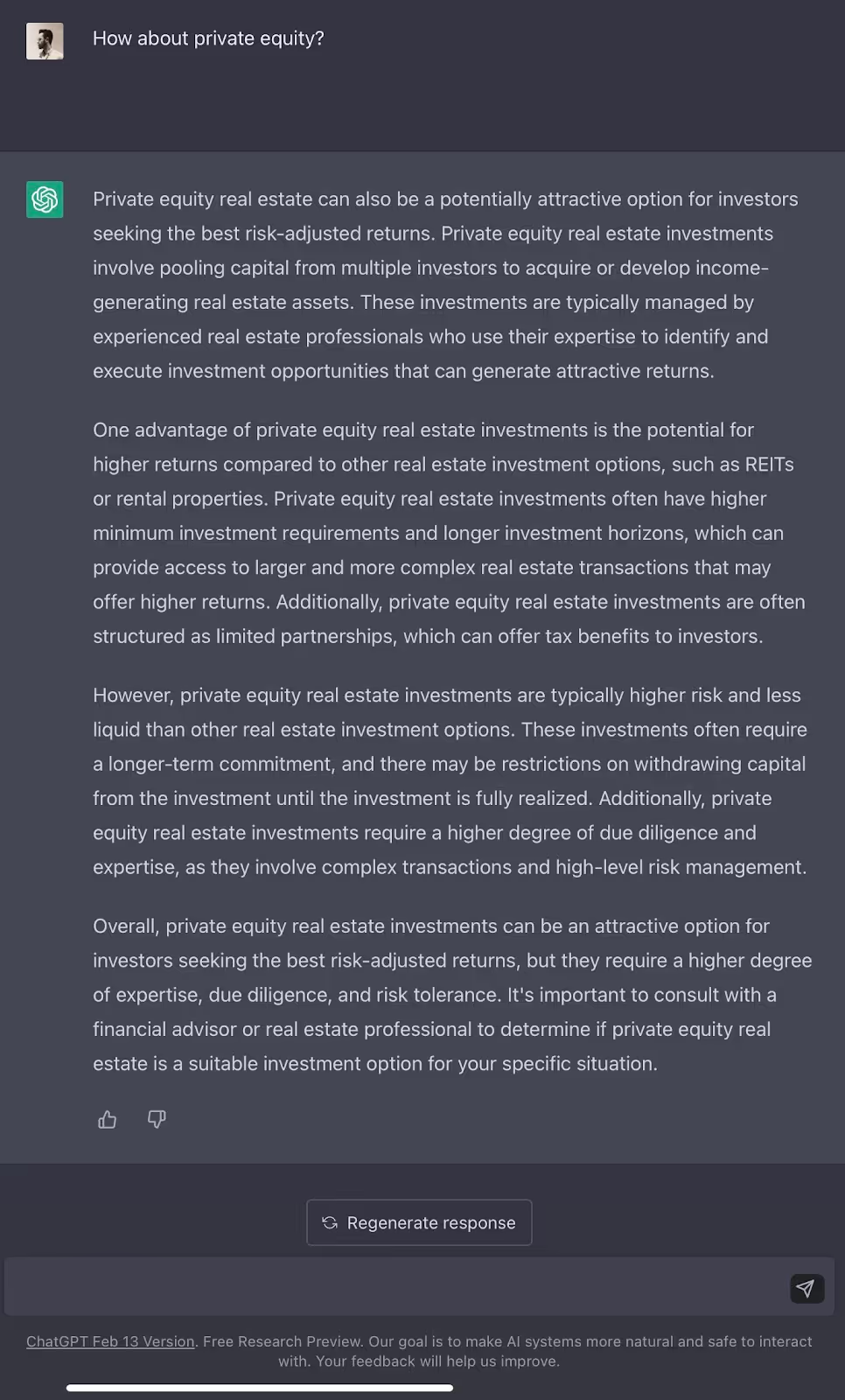
As an assessment of the pros and cons of private equity for most investors, that’s right on the money. Private equity can offer superior returns, but it also locks investors in with longer time horizons and higher minimum contributions. And as always, ChatGPT finishes up with our favorite boilerplate: before you invest, make sure you know who you’re handing your hard-earned money to.
At this point, we were so impressed with ChatGPT’s offerings that we decided to give it some tougher questions. First, we tried to see whether it can really get inside a real estate investor’s head.
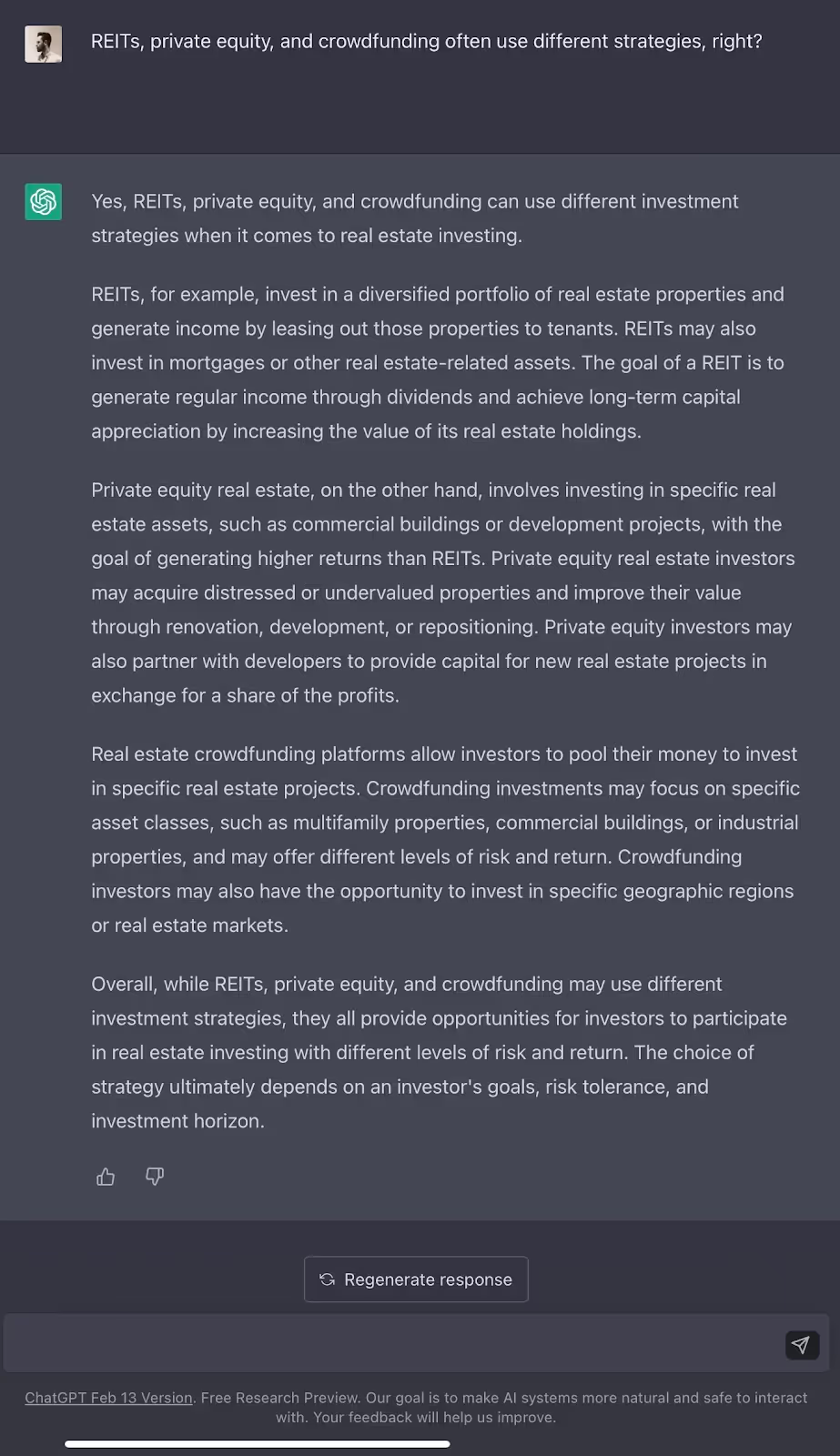
It did okay, but this is where ChatGPT really starts to bottom out. It didn’t really say anything incorrect, but its strategic analysis could use more depth. So we tried another angle, giving it a more specific situation to respond to.
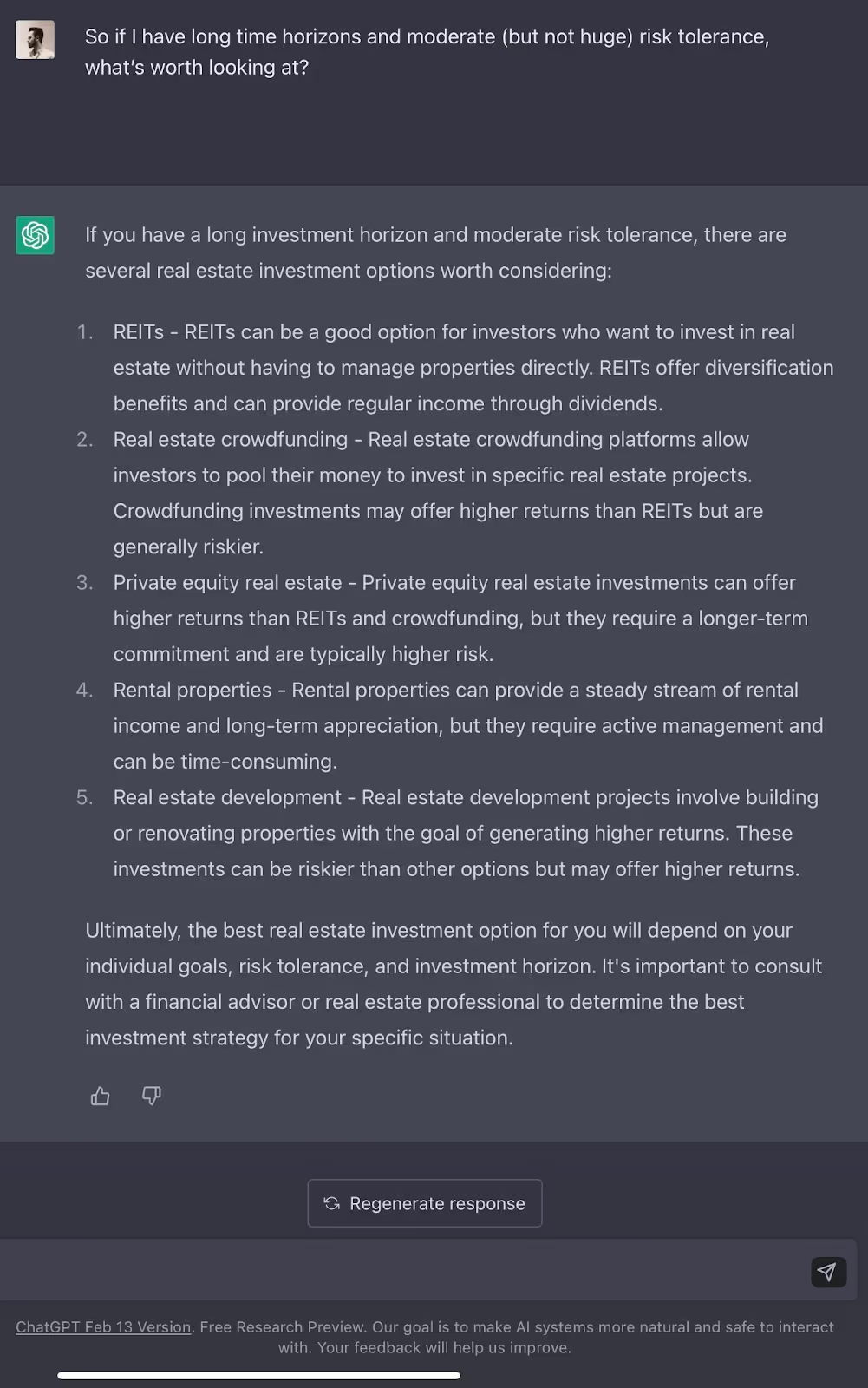
This one wasn’t too bad, but again, ChatGPT did a lot more hedging than problem-solving. While its generic observations weren’t really wrong, it also didn’t really answer our question. We began to fear that ChatGPT had given us all it could.
Boy were we wrong.
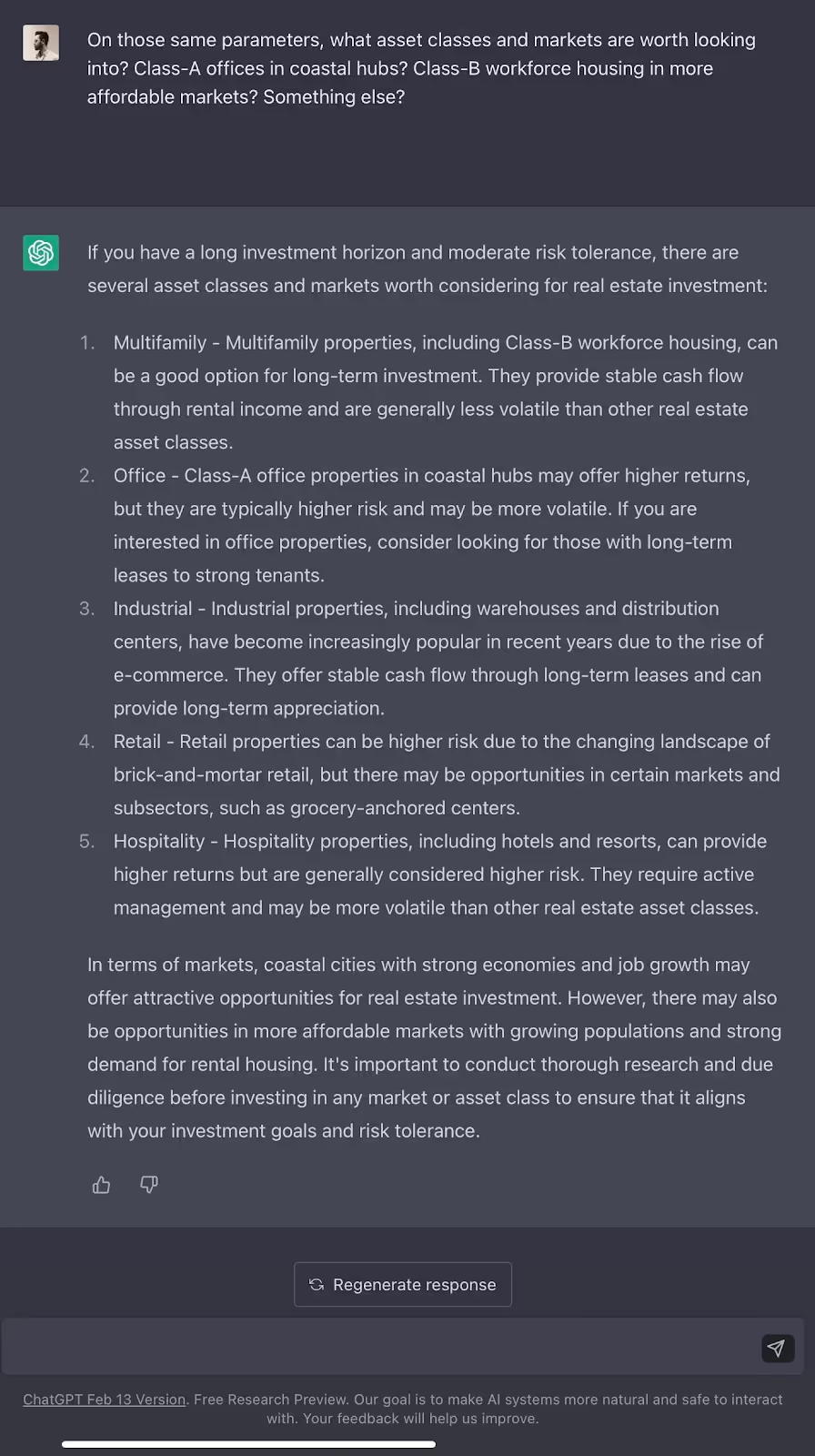
Vindication, baby! You heard it here first: AI says the best real estate investment is multifamily!
Okay, that’s a bit of a stretch. After all, we arguably fed it that conclusion with some pretty transparent prompt engineering. Still, it’s interesting to watch ChatGPT gradually get less cagey and more informative as you feed it more information about a hypothetical scenario.
The show wasn’t over either.
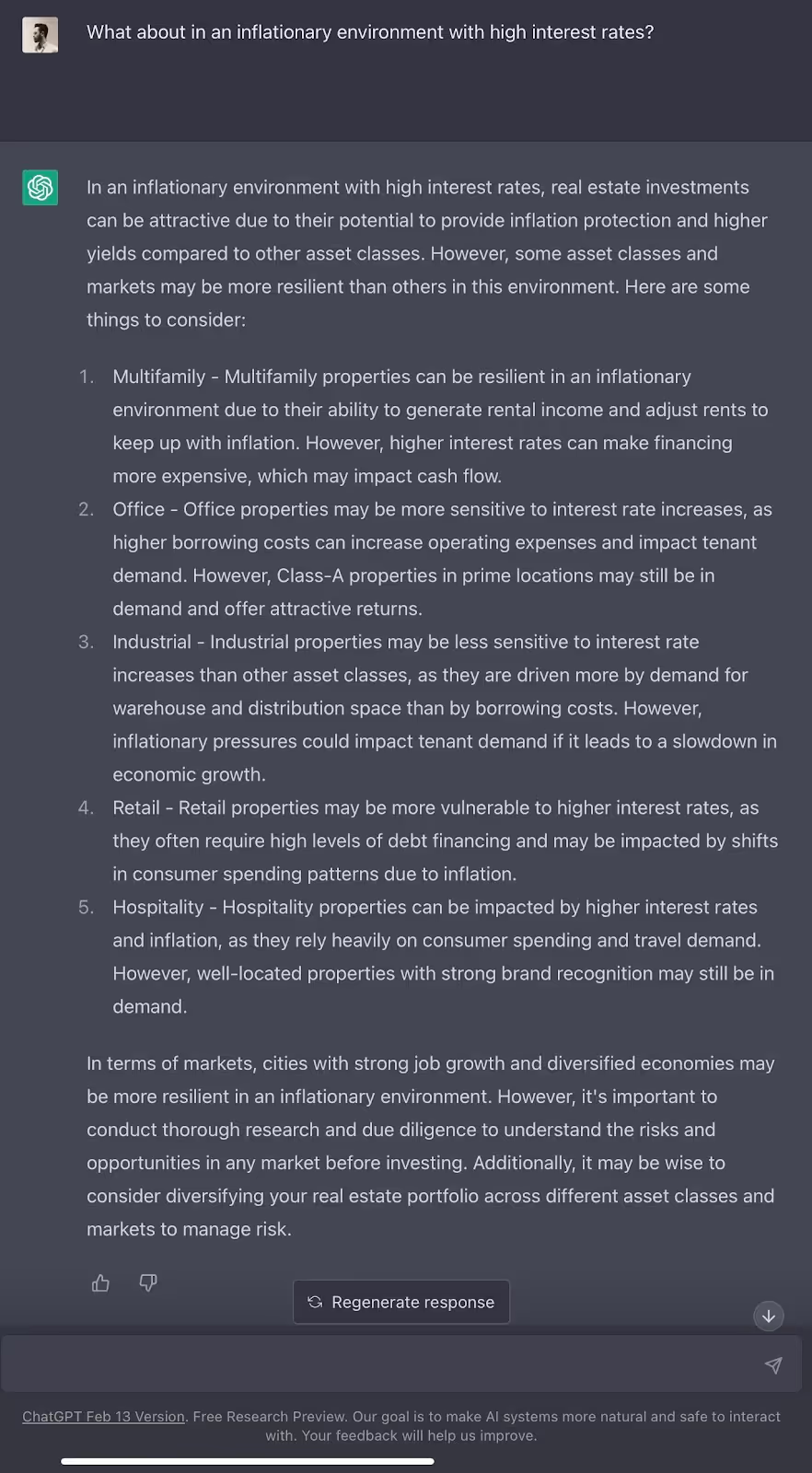
That’s what we were looking for! The analysis still isn’t quite right, and there’s a lot of missing specificity, but we’d give this one a pretty solid B+. Not bad for a language model.
As we kept asking questions, that pattern repeated: pretty solid answers, mostly correct factual information, but also lots of generalizations that may or may not prove true for any given investment plan.
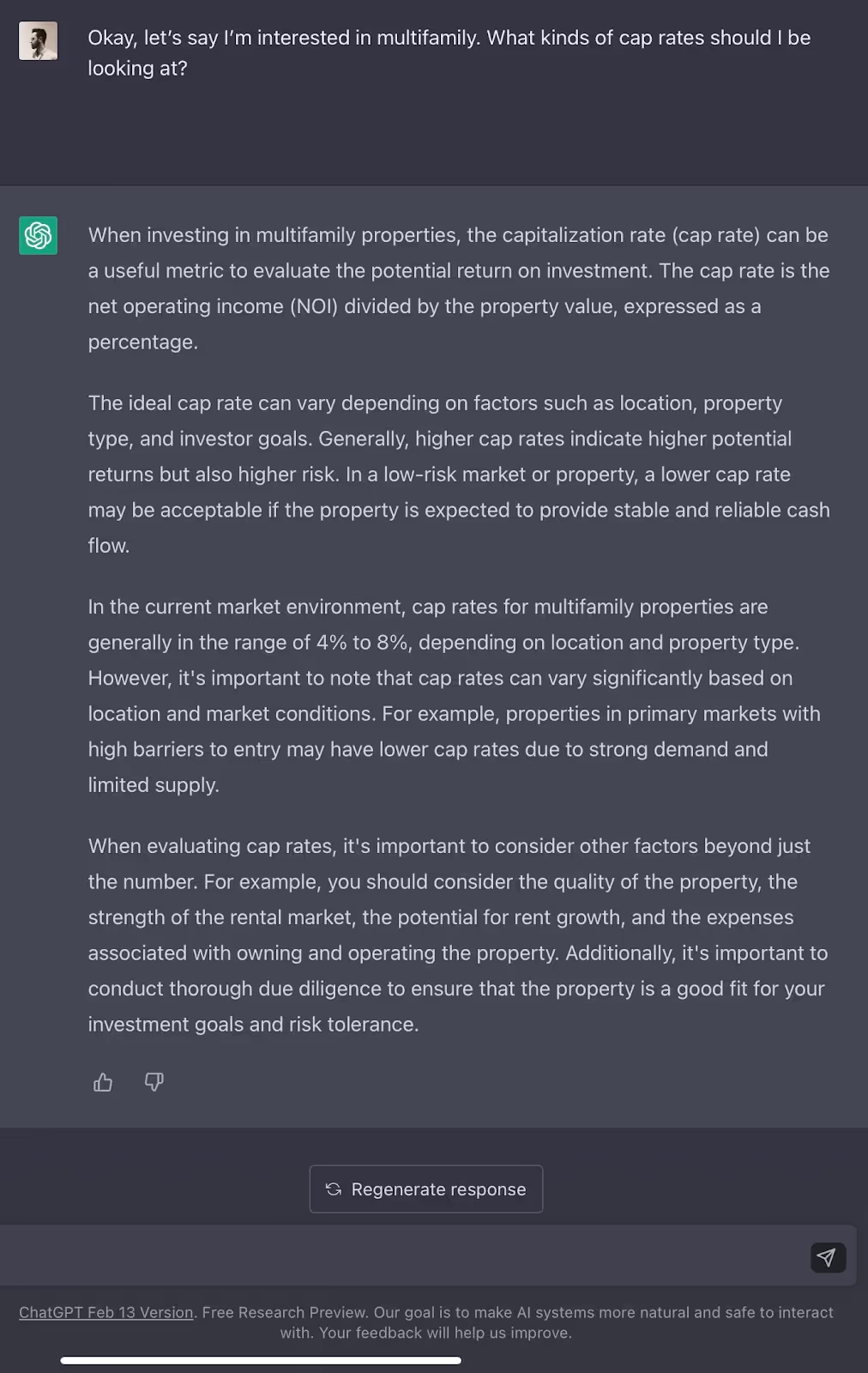

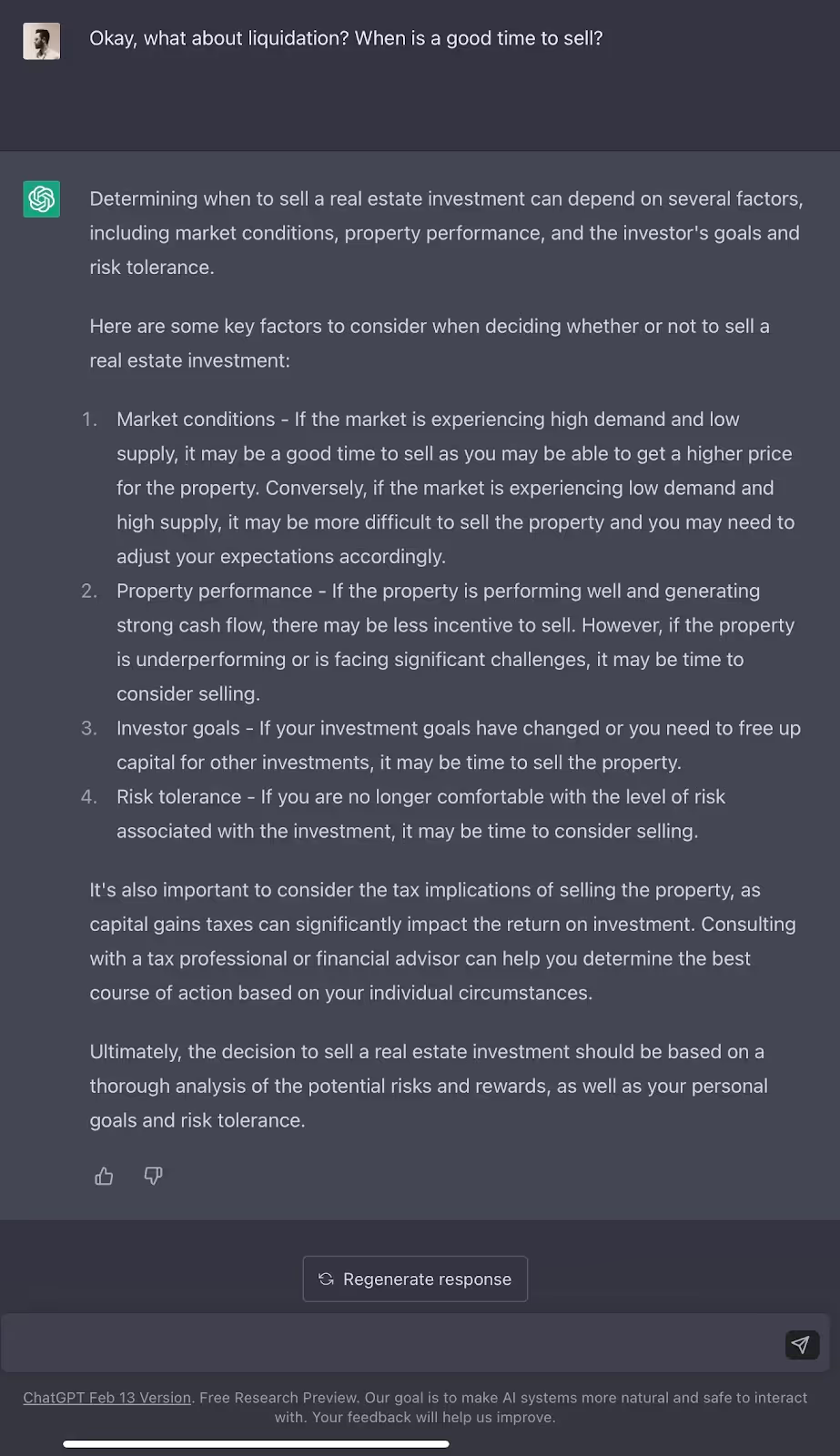
The Bottom Line
ChatGPT is pretty impressive. It gave us mostly useful information, with a sprinkling of helpful facts and insights that might look generic to an experienced investor but might prove genuinely useful for a beginner. ChatGPT isn’t the place to end your research. And it’s definitely not the place to get real investment advice. But overall, it did better than we expected.
Our takeaway: the thing ChatGPT most conspicuously lacks is not accuracy but judgment. ChatGPT—much like plenty of other internet services—can serve up information in response to queries all day. Some of the information will be true and useful (maybe even most of it), while some of it will be misleading or downright false. But the biggest problem with it is that information-dumping is all it can do. It can give you some options, tell you about the general upsides and downsides of a few strategies, and tailor its analysis to one or another particular situation (at least a little bit).
But what it can’t do is choose.
It can hand you a menu—maybe show you some options other people like. But it can’t tell you what to eat.
It can’t do your market research, it can’t negotiate complex deals, it can’t react to unforeseen circumstances, and it can’t cultivate the genuine human relationships that undergird any long-term viable investment plan.
Still, with a little patience and a lot of clever prompt engineering, it’s pretty cool. So now for the big question: are we gonna fire our writer and hand this blog to an AI?
Well, we guess it’s time for the big reveal: this entire post was written by ChatGPT.
Kidding. (Or are we?)


